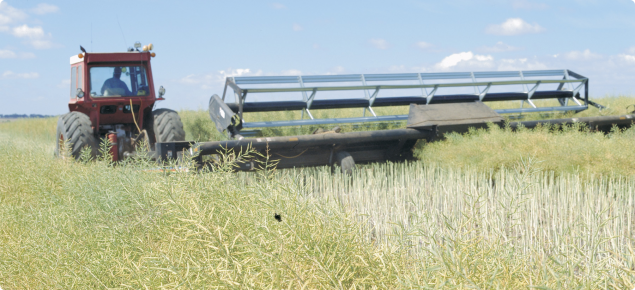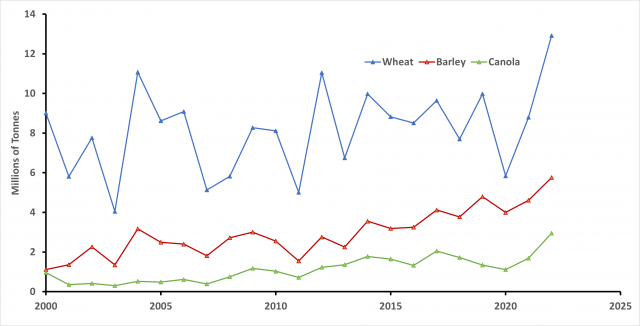Production
Canola is Western Australia's third largest broadacre crop after wheat and barley with production being an estimated 3 million tonnes in 2021/22.
WA is the dominant Australian state for canola production, accounting for nearly 50% of the nation's five-year average production of 4 million tonnes.
As well as being profitable in its own right, canola has become the most important break crop in WA cereal production systems - overtaking lupin due to higher profitability and better weed control options.
WA canola is grown using sustainable farming systems that can be certified to meet the sustainability criteria required to access the European Union markets.
Both conventional and genetically modified canola varieties are grown in WA, with strict segregation in the supply chain allowing the two systems to co-exist.
Exports
WA exports 90% of all the canola it produces - accounting for over half of the nation's total canola exports.
The value of WA canola exports have been increasing strongly since 2000 and are running at a five-year average of around $1.2 billion per year.
The major markets for WA canola in 2022 were the European Union, followed by Japan and UAE. Canola is used for both production of biodiesel and food in the EU.
Canola is also processed locally and exported as canola oil to Taiwan, Japan, China and Vietnam.
Processing
At present, there are two locally based canola crushing operations and both are small by international industry standards. These are located at Pinjarra and Kojonup. Between the two local crushers, there are about 60,000 tonnes of canola seed per year processed - representing less than 5% of the state’s total canola production.


